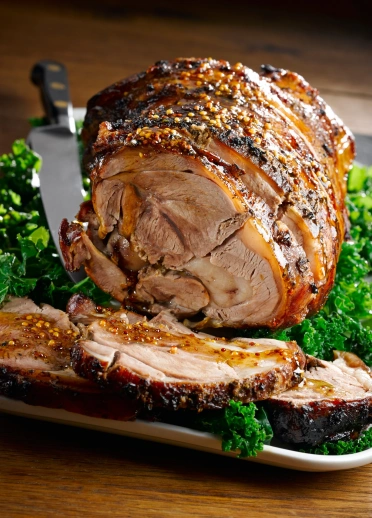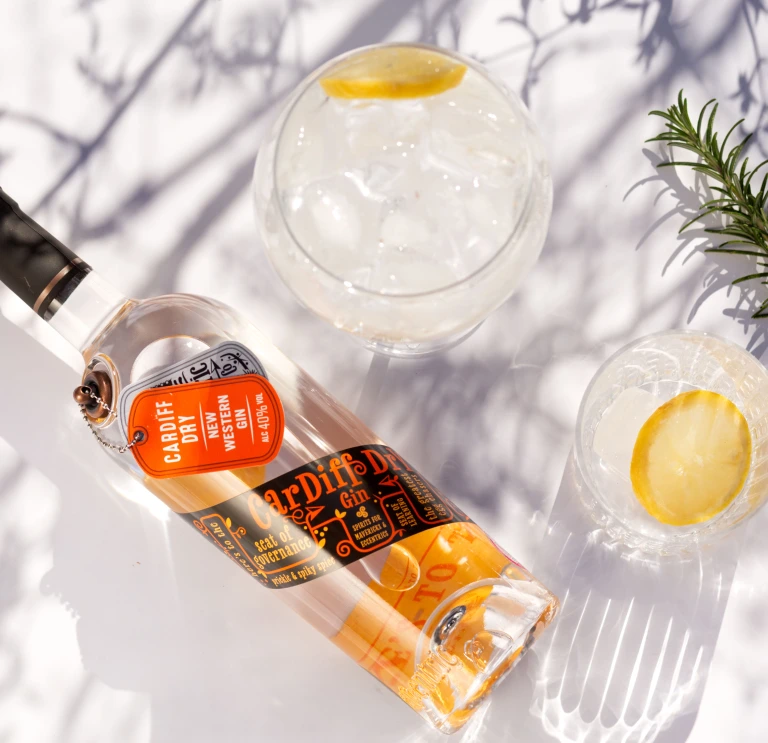Beer has a solid claim to be our national drink. There’s still a thirst for traditional cask ales, such as Cardiff’s famous Brains beers, or Felinfoel from Llanelli. And thanks to a pair of German immigrants in Wrexham, lager has been made here since Victorian times. Wrexham Lager was, in fact, one of the first lagers to be brewed in Britain. How’s that for a claim to fame?
More recently, we’ve seen an explosion of imaginative craft-ale brewers, such as Tiny Rebel, Grey Trees and Drop Bear. As a result, whether you’re looking for a hazy redcurrant pale ale, a chocolate stout or an alcohol-free IPA, you’ll find one that’s brewed in Wales. Cider has been enjoying a revival of its own, too, from tiny farmhouse producers to big independents like Gwynt y Ddraig.
The Romans were the first to tread grapes in Wales, but it’s only recently that we’ve built up a thriving wine industry. There are now over 30 vineyards throughout the country, producing an array of whites, reds and rosés, both still and sparkling. Many are open for tours, tastings and sales from the cellar door.
Our winemakers are geared to quality, not scale, and compete with the best in the world. White Castle in Monmouthshire is among the Welsh vineyards to have brought home top honours in international wine contests. You needn’t fear cheap imitations. By law, only vintages worthy of the name can call themselves Welsh Wine on the bottle.
Since 2023, Welsh whisky has enjoyed the same protection. Penderyn pioneered our whisky renaissance, and the single malts made at its three distilleries are now sipped in over 50 countries. It’s a flourishing craft, with brands including Dà Mhìle, In The Welsh Wind and Coles showing that Welsh whisky can be as distinctive a dram as scotch or bourbon.
Artisan gin makers have sprung up in every part of Wales, performing daily feats of alchemy: take Dyfi Distillery, which forages wild Welsh botanicals to flavour its acclaimed gin. And then there’s Welsh vodka, rum, brandy... even absinthe. You could say innovation is in our spirit.
Ten Welsh specialities
Cawl
This hearty broth is made from lamb or beef (or both), with whatever seasonal vegetables are available. Swede and leeks appear in almost all versions, but every Welsh family has its own cawl recipe that they think is the best.
Welsh lamb
We’ve been raising sheep for generations, and we’ve become very good at it. Welsh lamb is (we think) the best in the world, whether it’s raised up on the mountains or down on the coastal salt marshes.
Sewin
Looking (and tasting) somewhere between salmon and trout, this fine fish is traditionally caught by coracle fishermen, working in tiny handmade boats in the darkest hours of the night.


Welsh rarebit
The original name — Welsh rabbit — probably comes from an 18th-century joke that the Welsh couldn’t afford meat and so we had to survive on toasted cheese. We don’t care. Add a bit of mustard and a splash of ale, and this becomes a gourmet snack.
Cockles and laverbread
Molluscs and seaweed are an unusual choice for breakfast. But cockles and laver (cocos a bara lawr) are an essential part of the traditional Welsh breakfast fry-up, served with salty Welsh bacon.
Traditional Welsh Caerphilly (PGI)
This is our most famous cheese, but our landscape and dairy farming tradition means that there’s a huge variety of cheeses here, made from cow, goat and ewe milk.


Welsh cakes
These simple but delicious cakes consist of little more than flour, fat and a handful of dried fruit. They’re traditionally cooked on a planc, a cast-iron bakestone, and daring non-traditionalists often add a smear of butter and jam.
Glamorgan sausages
Selsig Morgannwg is another dish that thriftily replaces meat with Caerphilly cheese, leeks and breadcrumbs. It has become a vegetarian classic, proving that Welsh cuisine has always been ahead of fashion.
Crempog
Here’s our version of the humble pancake. Our crempogau are made with flour, buttermilk and a splash of vinegar. We make them thicker than the usual British version, so they’re possibly the ancestor of the modern American pancake.
Bara brith
Its meaning — speckled bread — comes from the dried fruit that fills this spiced loaf, although it’s much more of a cake than a bread. Serve with butter and a cup of tea. Bendigedig! (Amazing!)


Where to buy Welsh products in Japan
Dairy products


Drinks











Other






